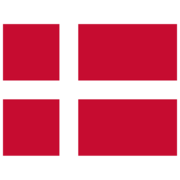Fiscal subject related
Beginning March 1, 2025, the Government of Greenland will require all individuals and businesses to issue digital invoices when providing goods or services to public authorities. These digital invoices must be formatted for automatic processing and include various document types such as invoices, credit notes, reminders, and business receipts. Detailed technical specifications can be found on the Inussuk-IT website.
Public authorities must register with the joint public NemHandelsRegister, overseen by the Danish Business Authority. When entering contracts, they are required to provide essential information, including their CVR number, GLN number, reference details, and requisition information to facilitate efficient invoice processing.
Municipal councils and the Economic and Personnel Agency will establish annual turnover thresholds to exempt smaller entities from this requirement. Any invoices that do not meet the digital processing standards will be rejected, which will reset the payment timeline to the date a corrected invoice is received.
Operating under a semi-autonomous status within the Kingdom of Denmark, Greenland manages its domestic affairs, including taxation. While it has the authority to adapt its financial regulations, like digital invoicing, to local needs, Denmark maintains oversight of foreign relations and monetary policy. This new digital invoicing mandate is part of Greenland's efforts to modernize its public sector transactions and improve transparency.
Other news from Denmark
Denmark Announces New Nemhandelsregister Update
 Denmark
Author: Ivana Picajkić
Denmark
Author: Ivana Picajkić
Denmark has announced a new Nemhandelsregister (NHR) update—covering NHR Core, API, SMP, and PoRS—bringing stability, security enhancements, and a key fix ensuring the validator now correctly handles overlapping profiles. The release, deployed to demo on 19 November and expected in production on 26 November 2025, may cause brief disruptions but requires no actions from market participants. The Dan... Read more



Denmark Releases Updated OIOUBL Schematron
 Denmark
Author: Ivana Picajkić
Denmark
Author: Ivana Picajkić
The Danish Business Authority released OIOUBL 2.1 schematron version 1.16.0, enhancing e-invoice data quality with CO2 data checks and stricter currency code controls. Implementation is required by November 27, 2025. The Danish Business Authority has released version 1.16.0 of the OIOUBL 2.1 schematron as a final version. The update is minor and focuses on improving data quality in e-invoices. Th... Read more



Denmark: Sale of Christmas Calendars is VAT Exempt
 Denmark
Author: Ivana Picajkić
Denmark
Author: Ivana Picajkić
The Danish Tax Council has classified Christmas calendars involving discounts and prize draws as a single, composite service exempt from VAT, treating them as lotteries. Read more
Subscribe to get access to the latest news, documents, webinars and educations.
Already subscriber? Login


Denmark Advances with E-Invoicing and Digital Bookkeeping Plans
 Denmark
Author: Ivana Picajkić
Denmark
Author: Ivana Picajkić
Denmark is advancing its digital transformation by updating e-invoicing standards and strengthening digital bookkeeping rules, including new versions of OIOUBL and SAF-T expected by the end of 2025. Looking ahead to EU ViDA requirements, the country plans higher e-invoice adoption and tighter system integration, positioning Denmark as a leader in automated business transactions Denmark is continui... Read more



New document was uploaded: E-invoicing system in Denmark
 Denmark
Author: Ivana Picajkić
Denmark
Author: Ivana Picajkić
The purpose of this document is to describe how electronic invoices are handled in Denmark. This document explains e-invoices, what they are, and how they are used, with special attention being paid to their legal treatment in Denmark. Read more
Subscribe to get access to the latest news, documents, webinars and educations.
Already subscriber? Login


Denmark: OIOUBL 2.1 Schematron Version 1.16.0.RC Released
 Denmark
Author: Ivana Picajkić
Denmark
Author: Ivana Picajkić
Denmark’s Business Authority has released Schematron version 1.16.0.RC for OIOUBL 2.1, introducing enhanced validation for CO₂ data, stricter currency code enforcement, and overall data quality improvements in e-invoices. The final version is expected by late October 2025, with mandatory implementation set for 27 November 2025 The Danish Business Authority has published Schematron version 1.16.0.R... Read more



Denmark’s National Bank Updates Guidance on Payment System Failures
 Denmark
Author: Ivana Picajkić
Denmark
Author: Ivana Picajkić
Denmark’s National Bank has issued updated guidance to strengthen resilience against payment system outages, urging citizens and retailers to prepare for disruptions by enabling offline card transactions and maintaining multiple payment options. By the end of 2025, offline payments via Dankort, Mastercard, Visa, and mobile wallets like Apple Pay and Google Pay will be available nationwide, ensurin... Read more


